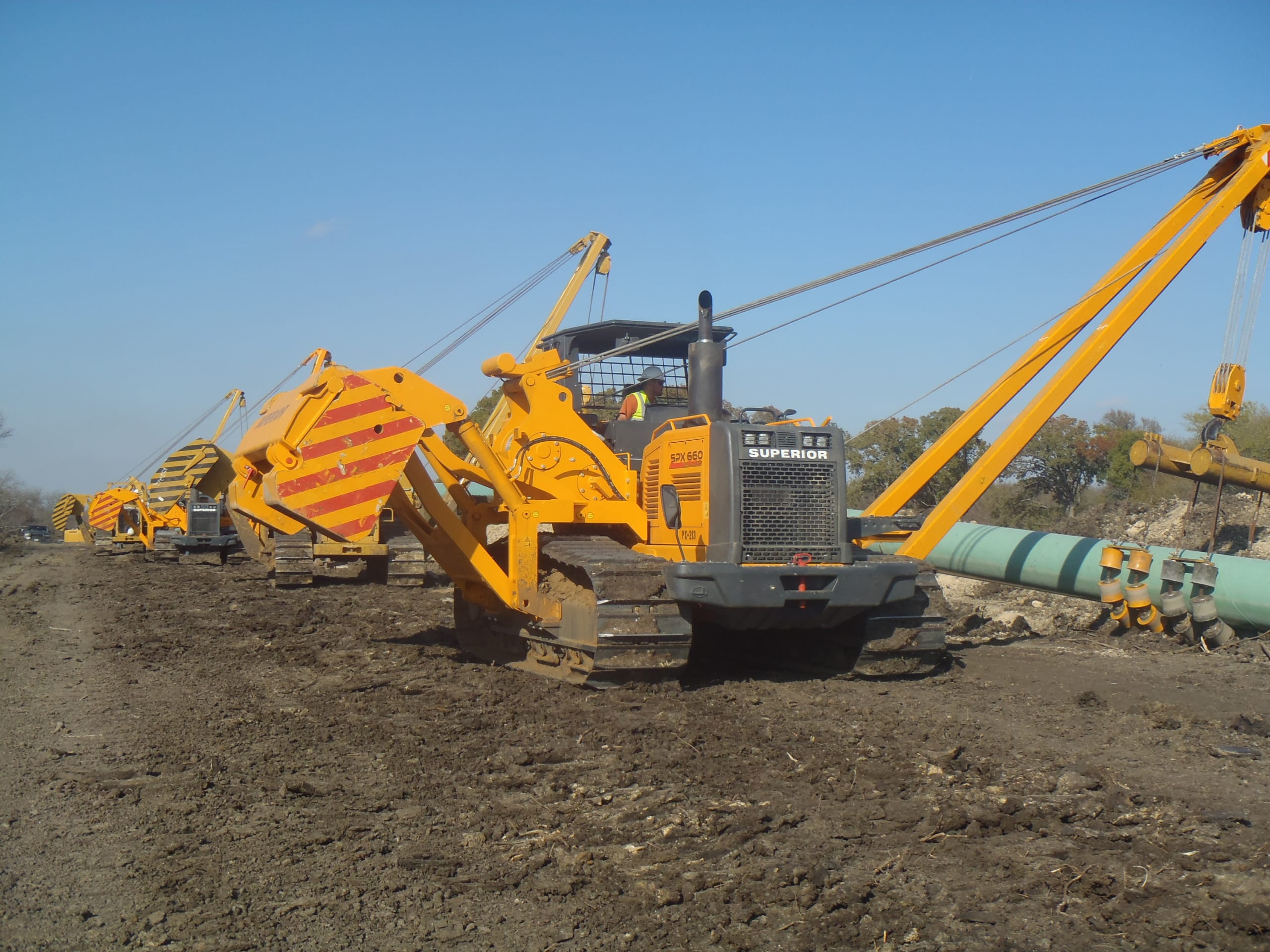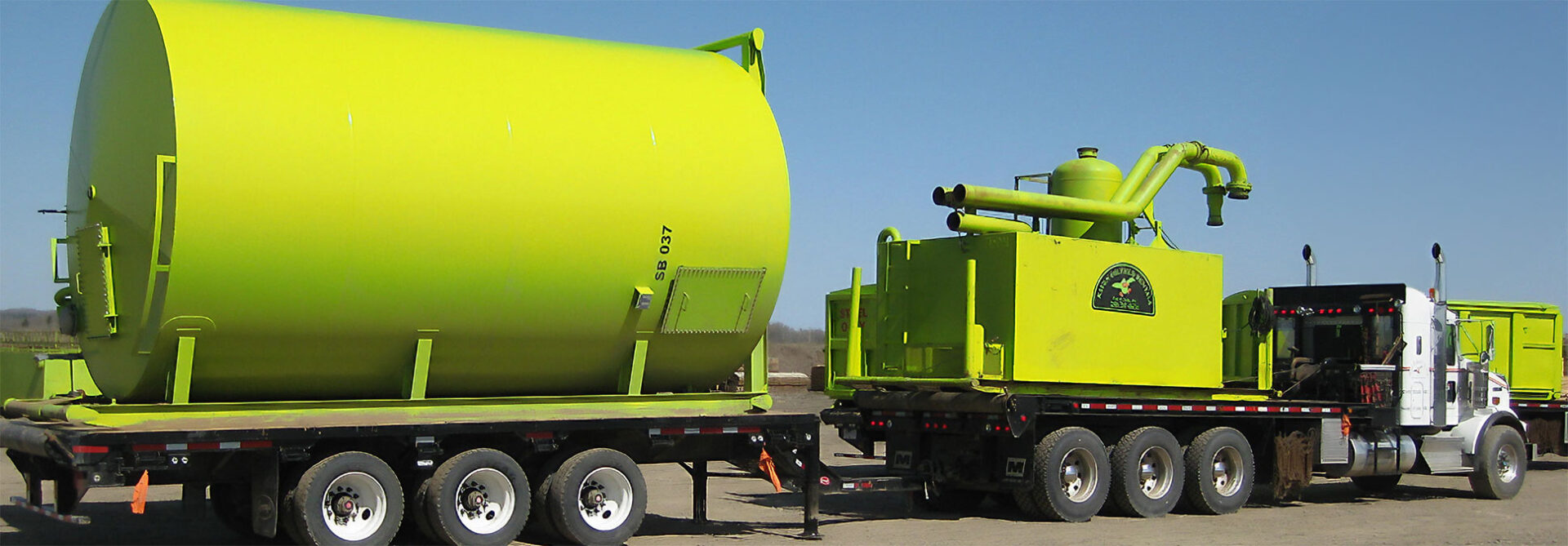A Comprehensive Guide to the Different Sorts Of Oil Field Equipment and Pipeline Equipment Available
The oil and gas industry counts heavily on specialized devices for reliable extraction and transportation. Numerous kinds of machinery, from piercing rigs to tank, play vital duties in this complicated process. Each tool offers distinct functions that contribute to general operational success. Recognizing these elements is necessary for anyone associated with the field. As the sector progresses, so as well do the modern technologies that support it. What innovations are on the horizon?

Drilling Rigs: The Backbone of Oil Expedition
Drilling rigs serve as the crucial equipment in the domain of oil exploration, allowing firms to gain access to hydrocarbon books buried deep beneath the Planet's surface. These rigs come in numerous types, including land rigs, offshore rigs, and mobile units, each developed to operate in details atmospheres. Outfitted with advanced modern technology, piercing rigs can permeate geological developments with precision, guaranteeing effective source removal. The architectural honesty and operational capabilities of these rigs are important, as they must withstand extreme conditions and significant pressures. The choice of a drilling gear affects the overall task expense and timeline, making it a vital consideration for oil business looking for to maximize their exploration initiatives and maximize performance in their procedures.
Pumps: Crucial for Liquid Motion
In the oil extraction process, the role of pumps is substantial, facilitating the activity of liquids throughout different stages of production. Pumps are important for carrying crude oil, water, and various other liquids from underground reservoirs to the surface and then through pipes to refineries. They can be found in numerous kinds, consisting of centrifugal, positive displacement, and completely submersible pumps, each offering specific purposes based upon the fluid features and operational demands. Centrifugal pumps are frequently made use of for their effectiveness in high-flow applications, while favorable variation pumps succeed in dealing with viscous fluids. The selection of pump influences overall effectiveness, functional security, and upkeep prices. Proper option and maintenance of pumps are vital for enhancing production and decreasing downtime in oil area procedures.
Valves: Controlling Flow and Pressure

Shutoffs play an important role in handling the flow and pressure of fluids within oil areas and pipelines. Different sorts of shutoffs serve distinct applications, each developed to meet details features basic for effective procedure - Superior Oilfield Rentals. Understanding the characteristics and uses these shutoffs is vital for enhancing system performance and safety
Sorts of Valves
Crucial components in oil field procedures, shutoffs play an important function in managing the flow and pressure of fluids within pipelines and equipment. Different sorts of shutoffs are used to meet the diverse needs of oil and gas manufacturing. Typical types include gateway valves, which give a straight-line flow and very little pressure drop; globe shutoffs, known for their throttling capacities; and round valves, recognized for their quick on/off control. Furthermore, check valves avoid backflow, while butterfly valves supply a lightweight option for controling flow. Each valve type is created with particular materials and arrangements to endure the harsh conditions often discovered in oil fields, guaranteeing reliability and efficiency in procedures. Comprehending these types is crucial for effective system administration.
Valve Applications and Features
While different kinds of valves offer distinctive purposes, their key applications focus on regulating flow and stress within oil and gas systems. Shutoffs such as entrance, globe, and round shutoffs control liquid motion, ensuring peak performance and safety. Gate valves are generally used for on/off control, giving minimal circulation resistance. World shutoffs, on the other hand, offer specific circulation guideline, making them appropriate for throttling applications. Round shutoffs are preferred for their fast operation and tight sealing abilities. Furthermore, pressure relief valves are important for avoiding system overpressure, safeguarding equipment integrity. Overall, the appropriate option and application of valves enhance functional efficiency, making sure the reputable transportation of oil and gas through pipes and handling facilities.
Compressors: Enhancing Gas Transport
Compressors play an essential role in the effective transport of gas, ensuring that it relocates efficiently through pipelines over cross countries. These devices increase the pressure of all-natural gas, enabling it to overcome friction and altitude modifications within the pipeline system. In addition, compressors assist in the balancing of supply and demand, accommodating variations in usage and manufacturing prices. Numerous sorts of compressors are utilized in the industry, consisting of centrifugal, reciprocating, and rotary screw compressors, each offering distinctive benefits based upon the functional demands. Regular upkeep of these compressors is important to make best use of efficiency and minimize downtime, ultimately adding to a reliable gas transportation network. Their crucial function emphasizes the relevance of compressors in the general oil and gas facilities.
Storage Tanks: Safe and Reliable Liquid Administration
Effective transportation of natural gas depends on various support group, one of which is the appropriate administration of storage space tanks. These tanks play a vital role in securely consisting of fluids, making sure that functional effectiveness is kept while lessening ecological threats. Created from durable products, they are created to endure high pressures and corrosive elements. Appropriately sized and strategically located, tank assist in the smooth circulation of gas and other fluids, preventing traffic jams in supply chains. check here Regular upkeep and tracking are important to identify leaks or structural problems, promoting safety and security and compliance with governing standards. Eventually, the efficient monitoring of storage space containers is important for the total stability and reliability of the oil and gas sector's fluid handling systems.
Pipeline Systems: Facilities for Transportation
Pipeline systems act as the foundation of the oil and gas sector, promoting the effective transport of hydrocarbons over substantial distances. These systems contain various components, consisting of pipelines, valves, pumps, and compressors, all meticulously created to ensure smooth flow. The products utilized in pipeline construction, frequently steel or high-density polyethylene, are chosen for longevity and resistance to rust. Pipeline networks can cover across land and water, connecting production sites to refineries and circulation centers. In addition, progressed innovation allows real-time surveillance of circulation prices and stress degrees, boosting functional efficiency. The tactical positioning of these pipes decreases ecological impact while optimizing source accessibility, therefore playing an important duty in conference energy needs internationally.
Security Equipment: Making Certain Employee and Environmental Defense
The procedure of pipeline systems, while crucial for energy transportation, also presents significant security difficulties for workers and the setting. Safety tools plays a substantial role in mitigating these risks. Individual protective equipment (PPE) such as headgears, handwear covers, and non-slip footwear safeguards workers from physical threats. In addition, gas detection systems check for leakages, guaranteeing that unsafe compounds do not posture a risk to personnel or the surrounding environment. Emergency situation closure systems are critical for promptly halting procedures throughout a situation, preventing prospective calamities. Spill control products, consisting of absorbents and obstacles, are essential for minimizing ecological effect. Generally, purchasing all-inclusive safety and security equipment is essential for maintaining functional integrity and safeguarding both workers and the atmosphere in the oil and gas sector.

Frequently Asked Questions
How Do I Pick the Right Oil Field Equipment for My Task?
Selecting the best oil area devices includes evaluating project specs, spending plan constraints, and operational needs. Consider factors such as equipment dependability, compatibility with existing systems, and the vendor's reputation to guarantee peak performance and security.
What Are the Upkeep Requirements for Oil Field Equipment?
Upkeep demands for oil field devices include normal examinations, lubrication, and timely repairs. Operators needs to also stick to supplier standards, screen efficiency metrics, and warranty compliance with safety regulations to enhance longevity and effectiveness.

Exactly How Can I Make Sure Compliance With Environmental Rules?
To assure compliance with environmental policies, firms have to conduct normal audits, carry out finest practices, buy training, preserve proper documentation, and stay upgraded on regulations (Superior Oilfield Rentals oilfield). Collaboration with ecological companies can additionally improve adherence to guidelines
What Is the Ordinary Lifespan of Pipeline Equipment?
The typical lifespan of pipeline equipment usually ranges from 20 to half a century, relying on variables such as material high quality, environmental problems, and upkeep techniques. Normal assessments can greatly influence longevity and operational efficiency.
Exactly how Do I Securely Carry Oil Field Equipment to Remote Locations?
Transporting oil field tools to remote locations needs mindful preparation, including path evaluation, securing licenses, making use of appropriate automobiles, and making certain security procedures are followed. Proper training and communication among teams are essential for effective transportation.